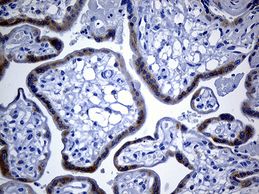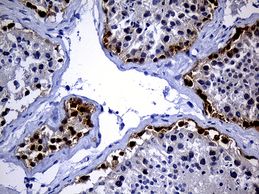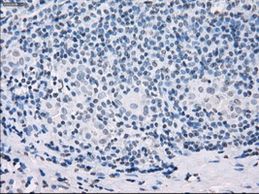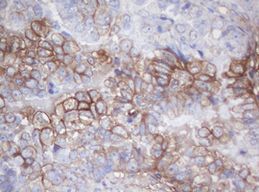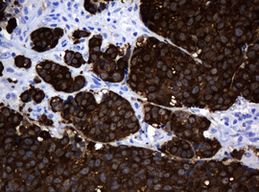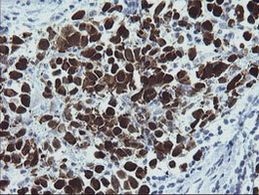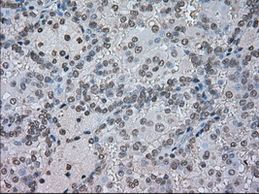Cancer Testis Antigen (CTAG1B, IGF2BP3, MAGEA3, MAGEA4, MAGEB18, SSX2) Antibody Panel
Cancer testis antigens (CTA) are tumor-associated antigens present only in the testis and placenta under normal conditions. In malignancy, the expression of these antigens is detected in tumors of different histological origins. So far, more than 70 families of CTA have been identified, the first in this class being MAGEA1, which was reported as a tumor-associated antigen (TAA) by a strategy called T-cell epitope cloning. Many other TAA has been identified using this same strategy, like MAGEA2, MAGEA3, BAGE, etc. The list of CTA has dramatically expanded through serological expression cloning (SEREX) and differential mRNA expression analysis.
CTA can be divided into two groups:
- X-CTA: Encoded on the X chromosome.
- Non-X-CTA: Not encoded on the X chromosome
Immunogenic response has been demonstrated against many CTA, and their limitation towards tumor cells makes them a good target for cancer immunotherapy.
Cancer Testis Antigen Panel ? Create your custom panel
Click the tabs below for more details:
IGF2BP3
IGF2BP3, also known as IMP3 or KOC, was first identified in pancreatic cancer. It is a NON-X-CTA located on chromosome 7 in humans. Sufficient data is unavailable about the IGF2BP3 physiological effect due to a lack of knockout in-vivo models. However, certain studies insinuate that IGF2BP3 plays a role in organogenesis and neural development due to its expression in the advanced stages of gestation. IGF2BP3 has been involved in human tumor progression by regulating cell growth making it an ideal target for cancer immunotherapy.
Products for IGF2BP3
Antibodies | Clones | Proteins | CRISPR | RNAi
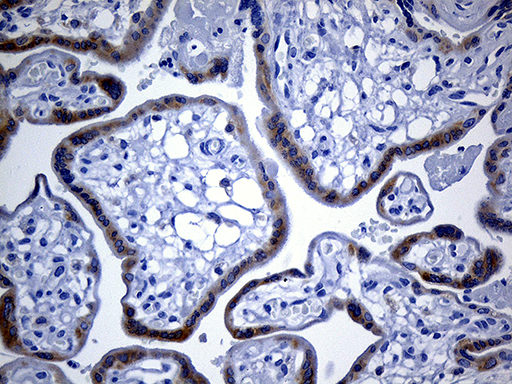
New York Esophageal Squamous Cell Carcinoma1-1 (NY-ESO-1)
NY-ESO-1, also known as CTAG1B, encodes an identical cytosolic protein (180 amino acids) that has restricted expression in germ cells but is ectopically made in cancers. Under normal conditions, embryonic expression of CTAG1 starts in the second trimester of human pregnancy, which coincides with the milestone when germ cells are proliferating.
Although the physiological functions of CTAG1 remain unclear, more than a hundred clinical trials for cancer treatment now target CTAG1 protein due to its pervasive presence in various types of cancers.
Products for NY-ESO-1
Antibodies | Clones | Proteins | CRISPR | RNAi
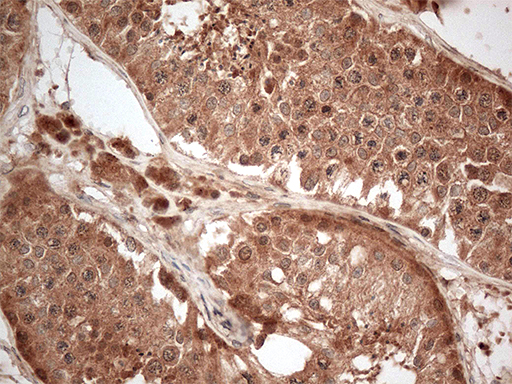
Synovial sarcoma X breakpoint 2 (SSX2)
SSX2 is the most frequently expressed member of the SSX family, along with SSX4. It is majorly seen in normal testis, and in several cases, it is found that SSX1, SSX2, SSX4, and SSX5 are expressed in different cancers. Studies show that SSX proteins predominantly located in the nucleus can act as a transcriptional repressor. SSX2 expression is associated with human prostate cancer making it an ideal biomarker for prostate cancer immunotherapy.
Products for SSX2
Antibodies | Clones | Proteins | CRISPR | RNAi
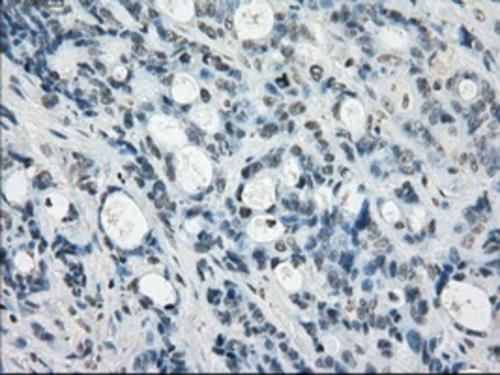
Melanoma antigen A3 (MAGEA3)
MAGEA3 is a part of the melanoma antigen (MAGE) protein family, containing a ~180-amino-acid MAGE homology domain (MHD), are conserved in eukaryotes, and have ~40 members in human and mouse. MAGEA1, the founder member of this family, was first identified as a cancer cell marker in melanoma. Soon after, it was found to have restricted expression in the male gonad, a mammalian body site with immune privilege. MAGEA3 is commonly expressed in multiple myeloma and correlates with plasma cell proliferation.
Products for MAGEA3
Antibodies | Assay Kits | Clones | Proteins | CRISPR | RNAi
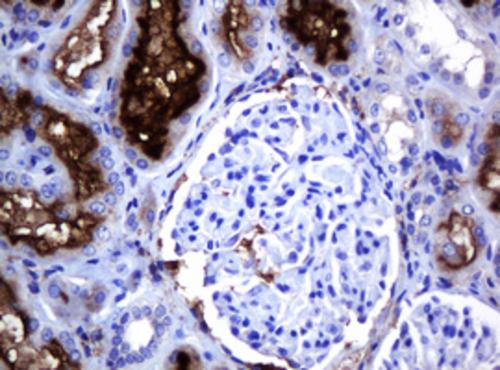
Melanoma antigen A4 (MAGEA4)
MAGEA4, similar to MAGEA3, is part of the melanoma antigen (MAGE) protein family. MAGEA4 acts as an activator of Trans-lesion synthesis, an error-prone mechanism for DNA repair. MAGEA4 is typically expressed in cancer cells; a few clinical trials use MAGEA4 as a target for cancer vaccines. Recent studies also show that MAGEA4 produced by silkworms can induce an antitumor immune response.
Products for MAGEA4
Antibodies | Clones | Proteins | CRISPR | RNAi
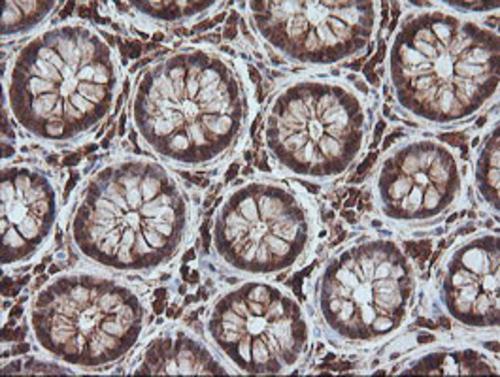
Melanoma antigen B18 (MAGEB18)
MAGEB18, similar to MAGEA3/A4, is part of the melanoma antigen (MAGE) protein MAGEB subfamily. MAGEB18 is expressed in testis but can be found in digestion and immune-related tissues. It is mainly expressed in proliferative spermatogonia and primary and secondary spermatocytes. studies have shown that MAGEB18 has carcinogenic potential and has a damaging effect on the occurrence and development of breast cancer. It has also been proven to encode a MAGE protein that regulates cell proliferation and apoptosis in melanoma cells.
Products for MAGEB18
Antibodies | Clones | Proteins | CRISPR | RNAi
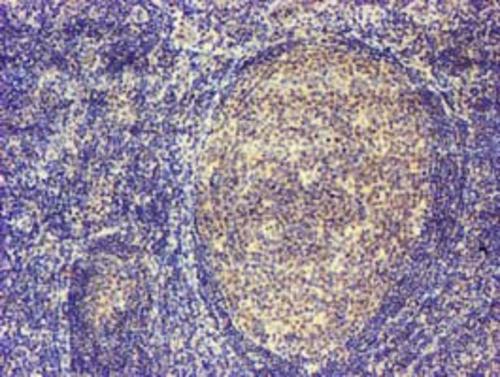






























































































































































































































































 Germany
Germany
 Japan
Japan
 United Kingdom
United Kingdom
 China
China
